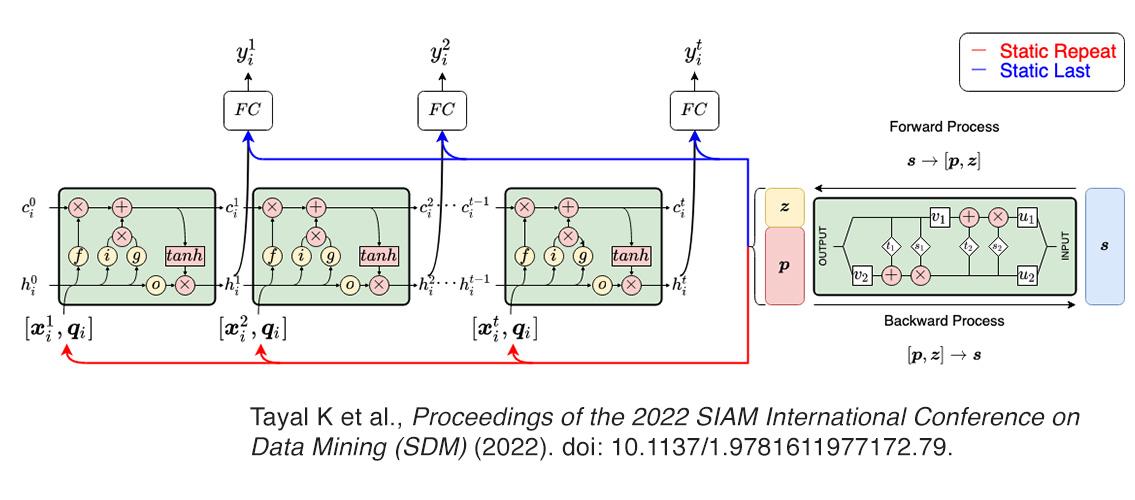
The varying water temperature in lakes affects local water supply quality, fishery yields, food resources, and power production. Information about lake-water temperature is also critical for those studying climate change and creating policy around it. Researchers are developing models to predict water temperature, but creating these models is difficult because of the large number of variables involved, some of which are unknown for specific bodies of water or are difficult to measure.
The research group of MSI PI Vipin Kumar (Regents Professor, Computer Science and Engineering) has developed a model that uses machine-learning methods. The model is called Invertibility-Aware-Long-Short-Term Memory (IA-LSTM) and incorporates static data, such as a lake’s physical features, and time-series data. The model can predict temperature profiles (forward modeling) and infer static features (inverse modeling), which improves prediction capabilities when these static variables are missing. While the model was tested on lakes, the general methods could also be used for other machine-learning tasks where static data are missing.
A paper about this project won the Best Application Paper Award at the SIAM (Society for Industrial and Applied Mathematics) International Conference on Data Mining (SDM’22), which was held virtually on April 28-30, 2022. The paper, Invertibility-aware integration of static and time-series data: An application to lake temperature modeling, was co-authored by researchers from the University of Minnesota (Kshitij Tayal, Rahul Ghosh, Jared Willard, Vipin Kumar), the University of Pittsburgh (Xiaowei Jia), and the U.S. Geological Survey (USGS) (Jordan Read). It can be found in the Proceedings of the 2022 SIAM International Conference on Data Mining (SDM). The USGS provided data from 450 lakes in the Midwest; this data was used in the development and evaluation of the model. The authors used MSI resources for the computations.
Regents Professor Kumar is a long-time PI at MSI, and his group members are active users of MSI’s systems. Several group members participated in the 2022 MSI Research Exhibition, held April 26, 2022, and one team of researchers from the Kumar group won the Grand Prize in the Physical Sciences and Engineering category. The poster, CalCROP21: A georeferenced multi-spectral dataset of satellite imagery and crop labels (authors: Rahul Ghosh, Praveen Ravirathinam, Xiaowei Jia, Ankush Khandelwal, David Mulla, Vipin Kumar), received a $2,000 travel award. The Kumar group also participated in early user testing of MSI’s newest supercomputer, Agate, which went into full production on April 27, 2022.
Image description: In Static-repeat IA-LSTM, the output of INN is concatenated with the input time series of LSTM at every time step, whereas in Static-last IA-LSTM the output of INN is concatenated with the output layer of LSTM. Image and description, Tayal K et al., Proceedings of the 2022 SIAM International Conference on Data Mining (SDM) (2022). doi: 10.1137/1.9781611977172.79.
posted on May 25, 2022